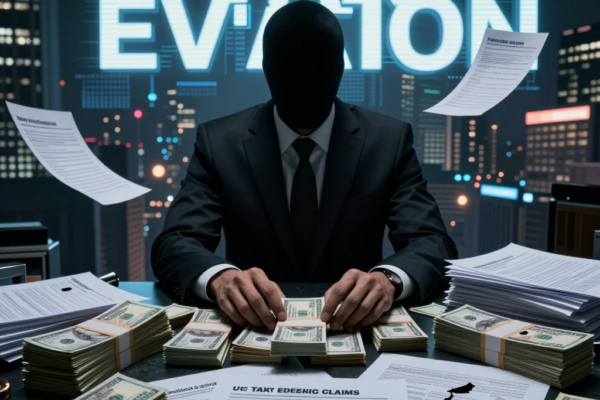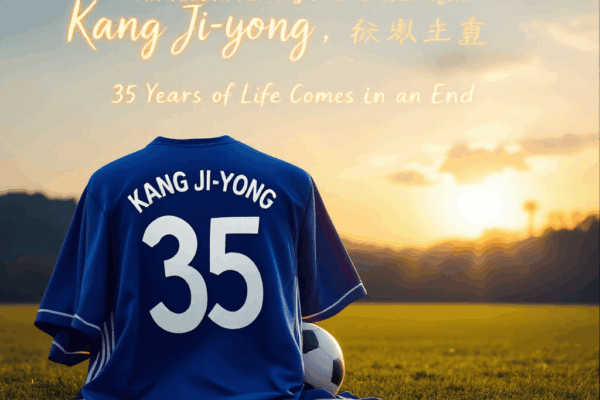Unexpected Alliance: Professor Byung-tae Lee’s Shocking Political Choice
A startling development has shaken the political arena. Professor Byung-tae Lee, a former KAIST professor and renowned economic strategist for Hong Joon-pyo’s camp, has suddenly joined Lee Jae-myung’s presidential campaign for the Democratic Party of Korea. What lies behind this astonishing decision?
Professor Byung-tae Lee’s Political Challenge
Known as a staunch advocate of free-market economics, Professor Lee’s move is far from a simple shift in allegiance—it’s an attempt to stir a fresh breeze in South Korea’s political landscape.
- Preventing Excessive Leftward Shift: By joining Lee Jae-myung’s camp, he aims to check the rise of overly left-leaning policies.
- Injecting Core Economic Values: He is determined to embed free-market economic principles into Lee’s policy framework.
A New Balance Between Politics and Economics
What changes will Professor Lee’s involvement bring to Lee Jae-myung’s campaign?
- Increased Credibility in Economic Policy: Bringing in a conservative-leaning economic expert promises to broaden the scope and reliability of their policies.
- Appealing to Centrist Voters: Balanced policies bridging progressive and conservative views could win crucial support from the center.
- Potential Policy Clashes: The real test will lie in managing conflicts with the camp’s existing progressive policies.
Professor Lee has openly acknowledged the risk, stating he is prepared for the possibility of being “discarded if the effort fails.” This signals his move as a genuine challenge for transformation, not mere political maneuvering.
Shaping the Future Political Landscape
This bold step by Professor Lee could shatter entrenched assumptions in Korean politics. His boundary-crossing choice between progressivism and conservatism demands close attention—how it will influence the 2025 presidential election and reshape the future of Korean politics remains an electrifying question.
The Breath of Political Shift: Lee Byung-tae’s Free Market Beliefs and Ideological Crossroads
What is he aiming for in a camp known for its strong left-wing image, after once shouting “Prevent Leftward Shift”? Witness a moment where faith in free-market economics and political tension intersect.
Lee Byung-tae’s Unexpected Choice
The entrance of former KAIST professor Lee Byung-tae into Lee Jae-myung’s camp sent shockwaves through the political sphere. Known as a leading conservative economic expert, Lee Byung-tae’s move to a progressive-leaning candidate’s camp defied many expectations. What hidden worries and strategies lie behind his decision?
Protector of Free Market Economics
Professor Lee stated that his main goals are “preventing excessive leftward shift” and “delivering mainstream economic values.” This reveals his strong belief in the free market economic system. What changes might his stance bring within Lee Jae-myung’s camp?
Ideological Conflict and Policy Harmony
Lee Byung-tae’s arrival brings both new challenges and opportunities to Lee Jae-myung’s camp. The meeting of progressive tendencies with conservative economic views may inevitably spark policy conflicts. Yet, it also presents a chance to make the camp’s economic policies more solid and balanced.
A New Horizon in Political Strategy
Lee Byung-tae’s recruitment suggests strategic shifts within Lee Jae-myung’s camp. It can be interpreted as an effort to appeal more widely to centrist and conservative voters. This appears to be part of a broader push to expand the political spectrum and boost trust in economic policies.
A Challenge Toward the Future
Professor Lee confessed that he braced for the possibility that his efforts might be “discarded if they fail.” This shows both his firm conviction and decisiveness, while hinting at the scale of challenges he will face ahead. It is a moment to closely watch how his economic expertise and policy planning will unfold and what impact they will have on Korean politics and economy.
Lee Byung-tae’s Economics, Shaking Up Policy
The entry of former KAIST professor Lee Byung-tae into Lee Jae-myung’s campaign has sent shockwaves through the political arena. Why does he emphasize ‘mainstream economics’ and the values of future-oriented conservatism? Aren’t you curious how Lee Byung-tae’s joining will change the key policy themes of Lee Jae-myung’s camp, and how his readiness to be ‘discarded after use’ will manifest in the field?
The Meaning of ‘Mainstream Economics’ According to Lee Byung-tae
Professor Lee emphasizes ‘mainstream economics’ centered on a free-market economy. This does not simply mean conservative economic policies. His core arguments include:
- Respect for Market Functions: Minimizing government intervention and trusting the market’s autonomous adjustment capabilities
- Promotion of Innovation and Competition: Creating an environment that fosters corporate creativity and competitiveness
- Deregulation: Removing unnecessary regulations to invigorate economic vitality
How can Lee Byung-tae’s economic perspective harmonize with the existing policy stance of Lee Jae-myung’s camp?
Future-Oriented Conservatism: A New Keyword for Lee Jae-myung’s Camp?
Professor Lee introduces the concept of ‘future-oriented conservatism,’ which offers a fresh interpretation of traditional conservatism:
- Generation Change: Reflecting the voices of the younger generation in policy
- Technological Innovation: Restructuring the economy to fit the era of the Fourth Industrial Revolution
- Global Competitiveness: Elevating Korea’s standing on the international stage
What impact will this perspective have on Lee Jae-myung’s policy direction? Could conflicts arise with progressive supporters?
The Meaning Behind the Readiness to Be ‘Discarded After Use’
Professor Lee has stated that he is prepared to be ‘discarded after use’ if his involvement fails. This reflects his strong determination as well as the harsh realities of politics:
- Potential Policy Clashes: The need to reconcile differences with existing camp members
- Pressure for Results: Demands for visible policy achievements within a short period
- Political Risks: Facing criticism from the conservative camp and concerns from progressive factions simultaneously
How will Professor Lee overcome these challenges and realize his economic beliefs in Lee Jae-myung’s policies?
Lee Byung-tae’s arrival signals a new shift in Korean politics. It will be fascinating to watch how his economics transform Lee Jae-myung’s policies and what impact this will have on Korea’s economy.
A Shift in the Political Landscape: Lee Byung-tae Joins, Reorienting the Economic Grand Strategy
The addition of Lee Byung-tae as the new ‘economic strategist’ in Lee Jae-myung’s camp is sending shockwaves through the political arena. This strategic recruitment, targeting voters across the centrist and conservative spectrum, raises the compelling question: can Lee Jae-myung’s camp successfully broaden its appeal?
The Strategic Significance of Recruiting Lee Byung-tae
Expanding the Center: Bringing in Lee Byung-tae, an advocate of free-market economics, is seen as an effort by Lee Jae-myung’s team to reach out to centrist voters.
Boosting Credibility in Economic Policies: As a former KAIST professor, Lee Byung-tae’s expertise is expected to enhance the credibility of the camp’s economic agenda.
Appealing to Conservatives: Lee’s previous role in Hong Jun-pyo’s camp sends a positive signal to conservative-leaning voters.
Anticipated Factional Struggles and Policy Clashes
Lee Byung-tae’s inclusion could present new challenges within Lee Jae-myung’s camp:
Balancing Left and Right Policies: Harmonizing the camp’s traditional progressive economic policies with Lee’s free-market views will be crucial.
Potential Internal Conflict: Disagreements over the direction of economic policies may emerge within the camp.
Risk of Alienating Core Supporters: Hardcore progressive backers might express dissatisfaction.
Forecasting the Upcoming Presidential Race Dynamics
The political shifts triggered by Lee Byung-tae’s recruitment are expected to unfold as follows:
Intensified Economic Policy Debate: The clash between free-market approaches and government intervention is likely to escalate.
Battle for the Centrist Vote: Both ruling and opposition parties will intensify their campaigns targeting middle-ground voters.
Possible Policy-driven Alliances: New political coalitions centered around economic policies may emerge.
Lee Byung-tae’s arrival marks more than just a personnel change—it could be a pivotal turning point reshaping South Korea’s political landscape. All eyes should be on the unfolding policy battles and evolving dynamics among political factions.
Conclusion: Byungtae Lee’s Choice, a New Crossroad Where Conviction Meets Strategy in Korean Politics
Could Byungtae Lee’s decisive move become the hidden “game changer” of the 2025 presidential election? Let’s explore together the profound significance of this dramatic shift, where politics and economics, personal conviction and strategy intersect.
Byungtae Lee, former KAIST professor, joining Lee Jae-myung’s campaign is not just a simple political shift but a herald of a new paradigm in Korean politics. His choice carries important implications:
Reframing Ideology: Lee’s move reveals the blurring boundaries between left and right ideologies. A conservative economist championing free-market principles supporting a progressive party’s presidential candidate signals a reshaping of Korea’s ideological spectrum.
Highlighting Economic Policy: As the election approaches, Lee’s inclusion signals that economic policy will be a central battleground. The balance between free-market economics and progressive welfare policies is poised to become a key electoral debate.
Strategic Flexibility: Bringing Lee into Lee Jae-myung’s camp demonstrates political adaptability and inclusiveness—a strategic choice aimed at appealing to a broader voter base.
Harmony of Personal Conviction and Political Reality: Lee’s decision can be seen as an effort to realize his economic beliefs within the political arena—a positive sign of strengthened communication between academia and politics.
Expectation of Elevated Policy Debate: With an economic expert’s involvement, the election process is expected to feature more in-depth discussions on economic policies, offering voters richer information and better choices.
Whether Byungtae Lee’s move will truly become the 2025 election’s “game changer” remains uncertain. However, his choice undeniably introduces a new dynamic into Korean politics. It is crucial to watch closely Lee’s evolving role, his influence, and the resulting policy shifts within Lee Jae-myung’s campaign.
Ultimately, Byungtae Lee’s decision stands at the intersection of personal conviction and political strategy. How this choice will transform Korean politics and economics is a story we must follow carefully in the days to come.




